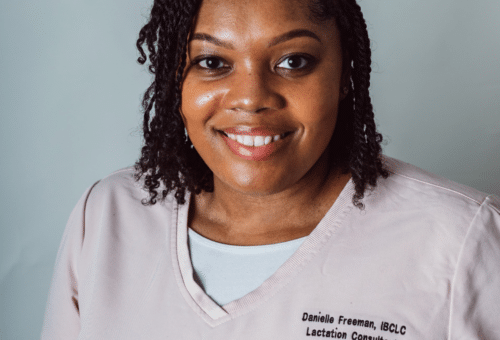Breastfeeding is normal. Everyone knows that, right? In 1996, Diane Wiessinger published an article, “Watch Your Language!,” in which she challenged all of us to understand fully the implications of this statement. We still struggle with it today twenty years later.
Because breastfeeding is the biological norm, breastfed babies are not “healthier,” artificially-fed babies are ill more often and more seriously. Breastfed babies do not “smell better”; artificial feeding results in an abnormal and unpleasant odor that reflects problems in the infant’s gut. We cannot expect to create a breastfeeding culture if we do not insist on a breastfeeding model of health in both our language and our literature.
In 2005, this perspective was reflected in the AAP statement on breastfeeding.
Exclusive breastfeeding is the reference or normative model against which all alternative feeding methods must be measured with regard to growth, health, development, and other short- and long-term outcomes.
Two recently published books revisit Diane’s challenge in different ways.
Back to the Breast: Natural Motherhood and Breastfeeding in America by University of Pennsylvania medical ethicist Jessica Martucci is a new look at the history of the period of the 1950s, 60s and 70s when formula became normal and breastfeeding the exception. In tracing the rather severe downward trend in breastfeeding in this period, Martucci also describes the mothers, organizations, researchers, nurses and doctors who promoted breastfeeding. Although they were largely in the background of a dominant trend promoting “scientific motherhood,” these supporters of “natural motherhood” laid important medical, social and research groundwork for us today.
Further, Back to the Breast describes well the history of the struggle we still face between the medicalization of breastfeeding, including management and measurement and research on the “advantages” of breastfeeding, and its normalcy. Half a century ago, when formula feeding was the measure of appropriate growth and development, there was a vocal minority of physicians and researchers who believed that breastfeeding should be the control, not the variable. How different things would be if this had been the case then, or if it were the case now.
In Lactivism, University of Toronto political scientist Courtney Jung takes to task the “feminists and fundamentalists, hippies and yuppies, physicians and politicians” of her book’s subtitle for considerably overrating the “benefits” of breastfeeding and leaving mothers everywhere feeling guilty when they cannot or choose not to breastfeed. Numerous blog posts and articles have responded to Jung’s claims, including cogent evaluations of the research she cites and her use of statistics. Lactivism challenges whether breastfeeding is “best” not whether it is normal. In doing so, Jung reminds us, the “lactivists” whom she disparages, that we continue to frame the discussion in terms of the “advantages” and “superiority” of breastfeeding.
Lactivism, and the press it has received, is a wake-up call. We have overplayed our hand in the “benefits of breastfeeding.” Breastfeeding is normal. It is the way babies were meant to eat, the food and feeding that promote normal nutrition, immunities and development. How cool is that!








